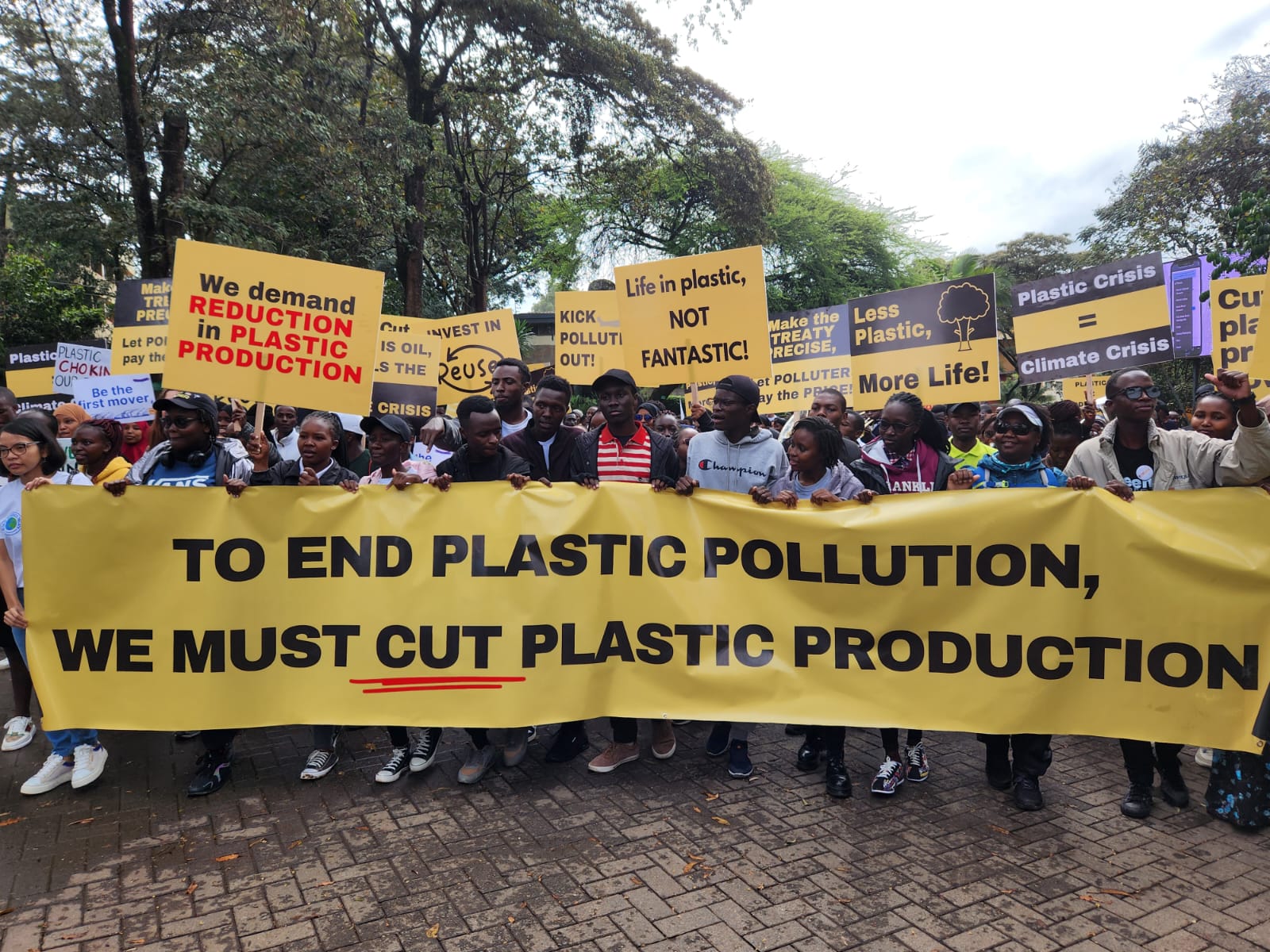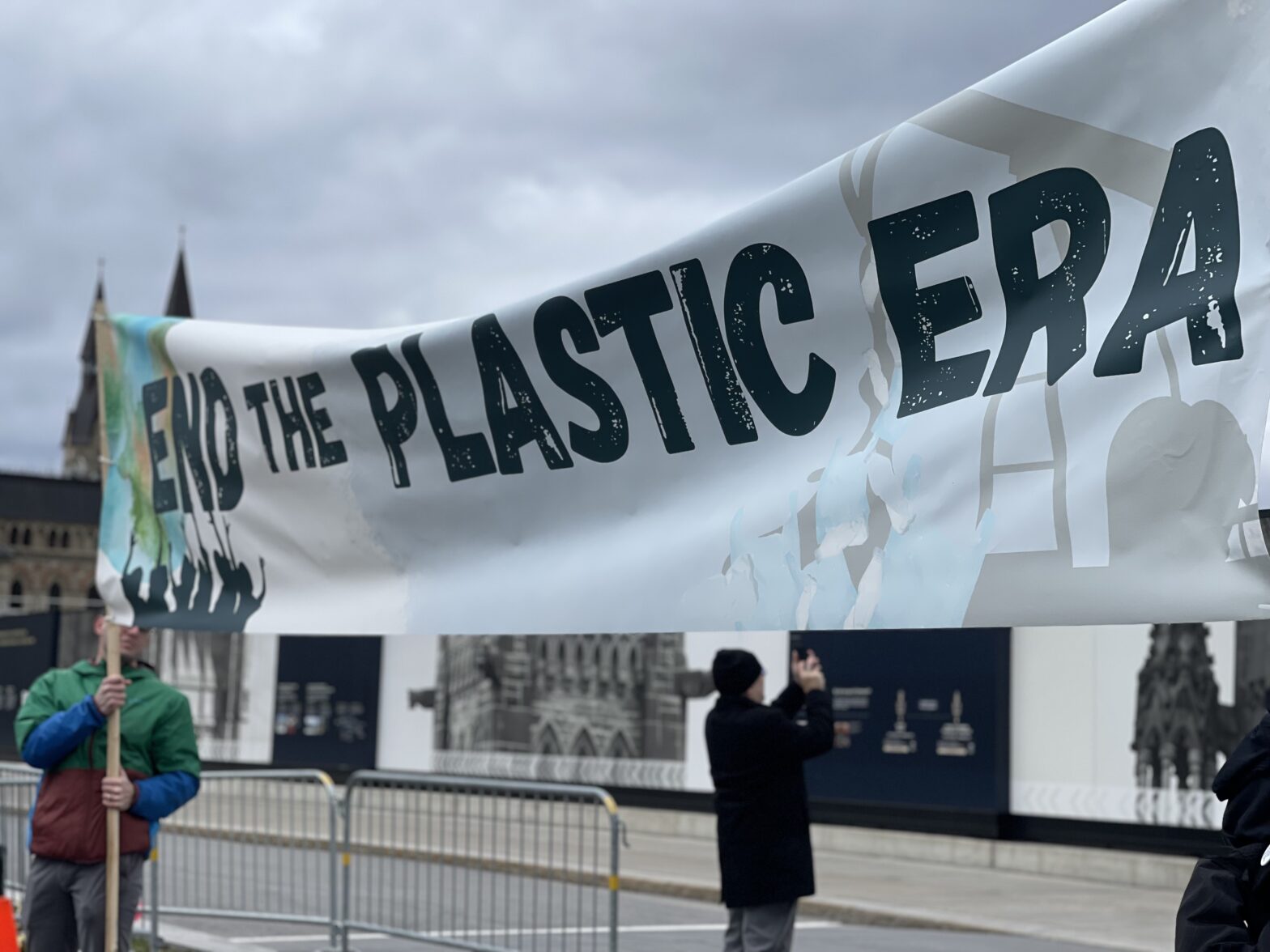Organizations express concerns that UNEP Executive Director Inger Andersen’s comments favor industry and risk prejudicing upcoming negotiations
NEW YORK, NY, OCTOBER 16, 2024 — Over 130 organizations are calling on United Nations Environment Programme (UNEP) Executive Director, Inger Andersen to reconsider recent public statements that they believe undermine the ongoing plastics treaty negotiations. The open letter, dated Thursday, October 17th, is addressed to United Nations Secretary-General (UNSG), António Guterres. It concerns comments made by Ms. Andersen in media interviews, speeches, and remarks made on behalf of the UNSG at a high-level event on the margins of the recent UN General Assembly.
The organizations argue that Ms. Andersen’s statements are part of a pattern of statements that “risk prejudicing the outcome” of the negotiations by narrowing the scope of the future treaty to focus on single-use and short-lived plastics. This position contradicts the full life cycle approach, including production and extraction, envisaged in UNEA Resolution 5/14, which gave UN Member States the mandate to negotiate a treaty.
“One of the most contentious topics of this negotiation is how — and if — the future plastics treaty addresses plastic production,” says Griffins Ochieng, Co-Founder and the Executive Director and Programme Coordinator of the Centre for Environment Justice and Development (CEJAD). “Petrostates and industry representatives have consistently argued that there is no place for plastic production reduction in the treaty. Ms. Andersen’s statements have effectively put her thumb on the scale of the debate at a critical moment when Member States are preparing to walk into the final scheduled round of negotiations in Busan, Republic of Korea. These comments are at odds with all scientific models looking at reducing plastic pollution as well as contradict UNEP’s own published position and are now being held up by industry representatives. This is a time when UNEP should champion ambition. Anything else is wholly inappropriate.”
Whether the future plastics treaty will address production remains unresolved as UN Member States and observers are preparing to enter the fifth and final scheduled session of the intergovernmental negotiating committee (INC-5) tasked with preparing the treaty. Some countries, including Rwanda, Peru, France, and the Pacific Small Island Developing States among others have championed limits on plastic production. However, Ms. Andersen’s comments in an AFP story characterize the conversation about production caps as “not intelligent.”
Yvette Arellano, Founder and Executive Director of Fenceline Watch stated, “Ms. Andersen’s comments disrespect the rightsholders, Indigenous Peoples, frontline communities, scientists, and others who are working to achieve the highest level of ambition possible in the treaty. Scientific evidence confirms that the full lifecycle of plastics begins with extraction and production and that the world needs to reduce plastic production to reduce pollution. With production expected to triple between now and 2050, a plastics treaty that only focuses on demand-side measures such as waste management and product design will fail to truly combat plastic pollution. There’s a reason that petrostates and fossil fuel companies are on the less ambitious side of this conversation — why is Ms. Andersen joining them?”
The letter requests that Ms. Andersen:
- Retract her statements suggesting conversations around production caps are “not intelligent.”
- Maintain her role as an impartial convener of the INC.
- Align future comments with the most recent scientific evidence regarding the plastic pollution crisis and the various UN bodies, including the UN High Commissioner for Human Rights, the UN Development Programme, the UN Special Rapporteur on toxics and human rights, and the UN Special Rapporteur on human rights and the Environment.
The signatories’ call for action follows previous letters from civil society organizations and rights holders expressing similar concerns about the negotiations’ direction and calling for more robust conflict of interest policies safeguarding the negotiations that are already under threat due to intense lobbying by oil, gas, and petrochemical sectors.
David Azoulay, Environmental Health Program Director at the Center for International Environmental Law concluded, “Reducing plastic production is a key element to end plastic pollution. It is an urgent environmental and human health matter, as well as an issue of human rights and climate. We urge Ms. Andersen to remember that she is the executive director of the United Nations Environment Programme, not the United Nations Industrial or Fossil Fuel Program. Her position should reflect scientific findings as well as human rights and environmental interests, rather than polluters’ views.”
###
Media contact:
Cate Bonacini, press@ciel.org, +1-510-520-9109

